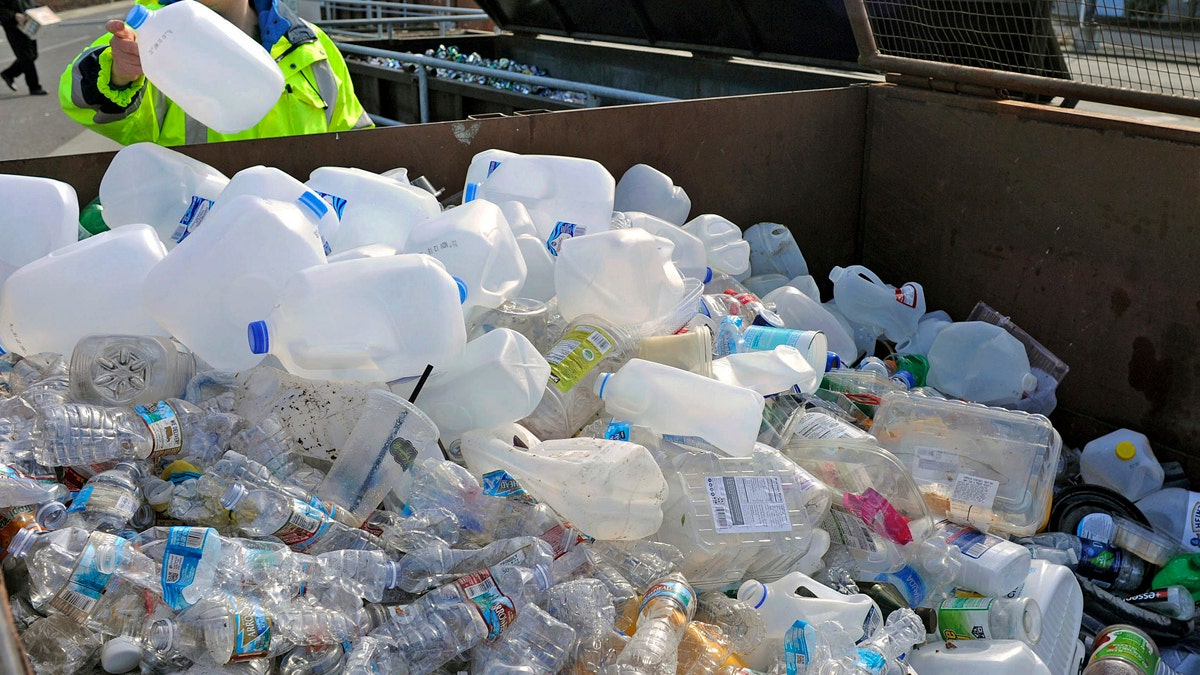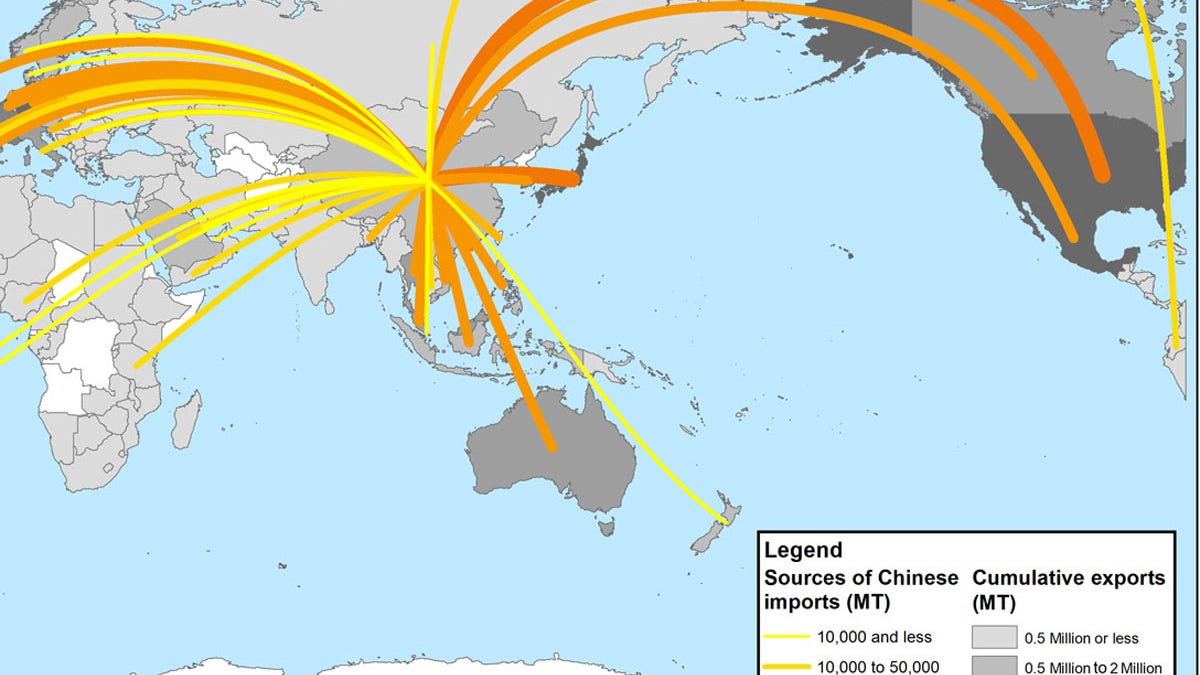
Skagit County Solid Waste Division manager Margo Gillaspy displays some recyclable plastic items in Mt. Vernon, Wash., in this March 12, 2018 file photo. (AP)
If a giant wave of plastic garbage washing up our shores seems like the stuff of science fiction, think again.
According to a study released Wednesday by scientists at the University of Georgia, 111 million metric tons of plastic waste will be “displaced”—a euphemism that means we have no idea where it will go—by 2030.
China, which has imported 45 percent of the world’s plastic since 1992 for recycling, banned the import of non-industrial waste beginning this year. Therefore, tens of millions of yogurt cups, water bottles, containers and plastic bags now have nowhere to go.
As the Science Advances study notes, plastic packaging and single-use plastics tend to enter the waste stream, contributing to a total of 6.3 billion metric tons of plastic waste generated worldwide. Some of that waste is recycled, but the overwhelming majority ends up in landfills or polluting our oceans.
“We know from our previous studies that only 9 percent of all plastic ever produced has been recycled, and the majority of it ends up in landfills or the natural environment,” Jenna Jambeck, associate professor in UGA’s College of engineering and co-author of the study, told UGA News.
CALIFORNIA MEGA-EARTHQUAKE FEAR: IS THE SAN ANDREAS FAULT AT RISK OF THE 'BIG ONE'?
Jambeck continued: “About 111 million metric tons of plastic waste is going to be displaced because of the import ban through 2030, so we’re going to have to develop more robust recycling programs domestically and rethink the use and design of plastic products if we want to deal with this waste responsibly.”

Pictured are sources of plastic waste imports into China and cumulative plastic waste export tonnage in 1988–2016. (Science Advances)
Since 1992, China has imported about 106 million metric tons of plastic waste. Higher income countries in Europe, Asia and the Americas account for the vast majority of all global plastic waste exports, the study says.
“Plastic waste was once a fairly profitable business for China, because they could use or resell the recycled plastic waste,” said Amy Brooks, a doctoral student in UGA’s College of Engineering and lead author of the paper. “But a lot of the plastic China received in recent years was poor quality, and it became difficult to turn a profit. China is also producing more plastic waste domestically, so it doesn’t have to rely on other nations for waste.”
Unfortunately, some of the plastic waste will now be diverted to countries without the existing infrastructure to manage even their own waste.
“Without bold new ideas and system-wide changes, even the relatively low current recycling rates will no longer be met, and our previously recycled materials could now end up in landfills,” Jambeck said.




















